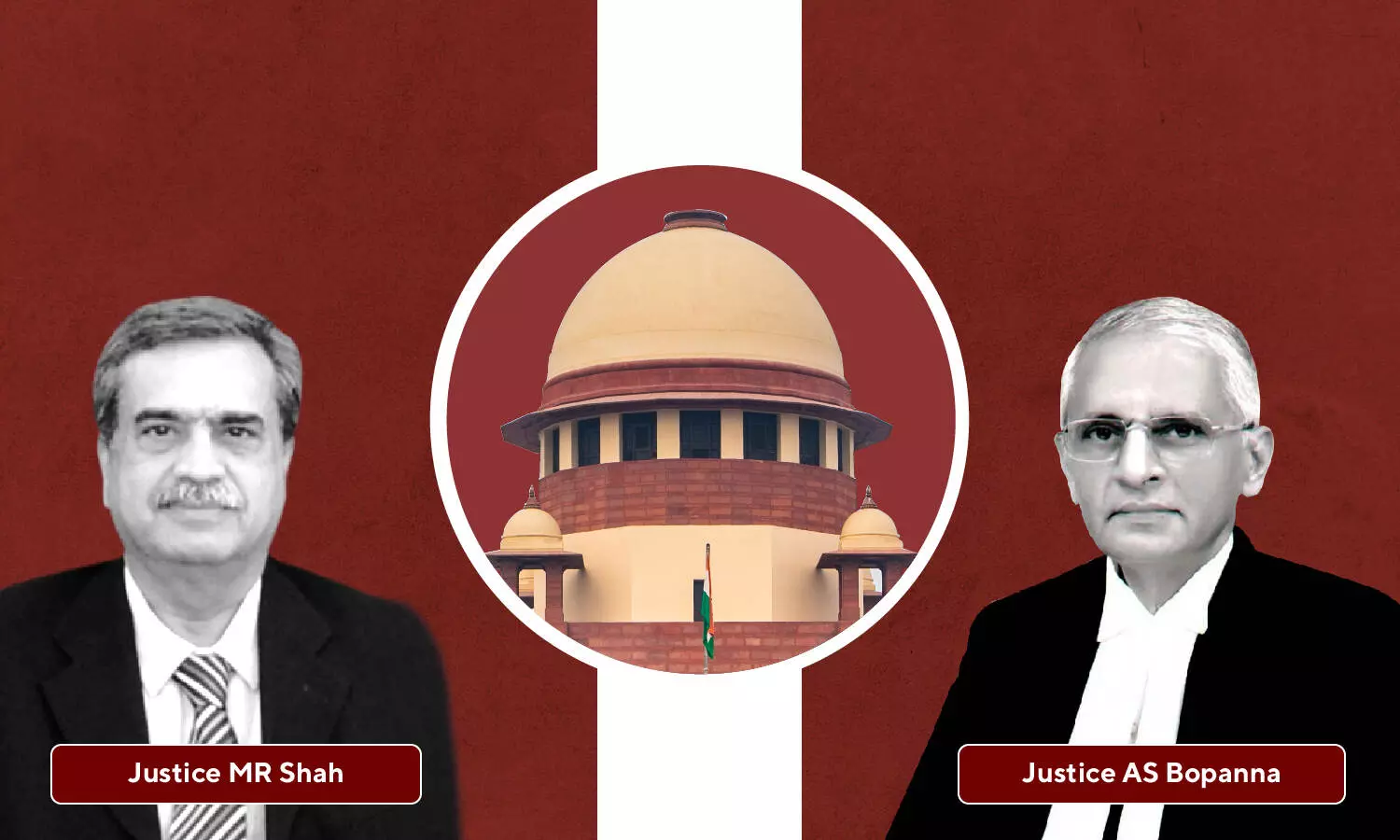
In The Absence Of Specific Allegation Against An Accused In A Private Complaint, Summons Cannot Be Issued: Supreme Court
 |
| A two-judge Bench of Justice MR Shah and Justice AS Bopanna has held that while issuing summons in a private complaint, the Magistrate has to record his satisfaction about prima facie case against an accused and the role played by the accused, which is a sine qua non for the initiation of criminal proceedings against the accused.
The Court considered the allegations and averments against the accused and held that there are no specific allegations or averments with respect to the role played by the accused and that without any specific role attributed to them, they cannot be arrayed as accused.
Appeals were preferred by the original complainant before the Supreme Court against the judgment passed by the Karnataka High Court which had upheld the decision of the Sessions Court, which had set aside the order passed by the Judicial Magistrate First Class, Mangalore issuing summons against the original accused nos. 1-8, who were the Respondents before the High Court and the Apex Court.
In this case, a complaint was filed by the Complainant against the Respondents 1-13 in the Court of Judicial Magistrate First Class, Mangalore for the offences punishable under sections 406, 418, 420, 427, 447, 506, and 120B read with Section 34 IPC contending that the Complainant was the owner of the immovable property in his possession.
It was alleged that Respondent nos. 1-13 (Respondent 1 & 6 were companies) had encroached upon the property of the Complainant by laying a water pipeline by the side of the road adjoining the property. It was contended that the Respondents had conspired with a common intention to lay the pipeline beneath the scheduled property of the Complainant without any lawful authority or right and demolished the compound wall, and cut and destroyed hundred valuable trees, causing a pecuniary loss of more than Rs. 27 lakhs.
The Judicial Magistrate First Class had passed an order for the issuance of summons against all the accused for the offences punishable under Sections 427, 447, 506, and 120B read with Section 34 IPC.
Aggrieved, the Respondents filed Revision Petitions before the Sessions Court which had allowed the Petitions and set aside the order of the Judicial Magistrate First Class. This decision was upheld by the Karnataka High Court by dismissing the revision applications of the Complainant.
The Appellant argued before the Apex Court that at the stage of summoning the accused, determining whether a prima facie case is made out on the basis of the statement of the complainant on oath and the material produced at this stage and the detailed examination on merits was not required.
While the Respondents contended that there were no specific allegations or role attributed to the accused, except the bald statement that all of them have connived with each other. It was further argued that issuing summons/process by the Court was a serious matter and therefore unless there were specific allegations and role of the accused more than the bald statement, the Magistrate ought not to have issued the process or summons.
The Court held that except for the bald statement of the Complainant that the Respondents 2-5 and 7-8 have conspired with a common intention to commit the crime, there was not even an allegation that the Respondents were present at the time of the incident.
"Accused nos. 2 to 5 and 7 & 8 are stationed at Hyderabad. There are no further allegations that at the command of A2 to A5 and A7 & A8, the demolition of the compound wall has taken place. All of them are arrayed as an accused as Chairman, Managing Director, Deputy General Manager (Civil & Env.), Planner & Executor, Chairman and Executive Director respectively. Therefore, as such, in absence of any specific allegations and the specific role attributed to them, the learned Magistrate was not justified in issuing process against accused nos. 1 to 8 for the offences punishable under Sections 427, 447, 506 and 120B read with Section 34 IPC," the Court observed.
The Court relied on the judgment of the Court in the matter of GHCL Employees Stock Option Trust v. India Infoline limited where it was held that while issuing summons, the learned Magistrate has to record his satisfaction about a prima facie case against the accused who are Managing Director, the Company Secretary and the Directors of the Company and the role played by them in their respective capacities which is a sine qua non for initiating criminal proceedings against them.
"Looking to the averments and the allegations in the complaint, there are no specific allegations and/or averments with respect to role played by them in their capacity as Chairman, Managing Director, Executive Director, Deputy General Manager and Planner & Executor. Merely because they are Chairman, Managing Director/Executive Director and/or Deputy General Manager and/or Planner/Supervisor of A1 & A6, without any specific role attributed and the role played by them in their capacity, they cannot be arrayed as an accused, more particularly they cannot be held vicariously liable for the offences committed by A1 & A6," the Bench noted.
"Under the circumstances, the High Court has rightly dismissed the revision applications and has rightly confirmed the order passed by the learned Sessions Court quashing and setting aside the order passed by the learned Magistrate issuing process against respondent nos. 1 to 8 herein – original accused nos. 1 to 8 for the offences punishable under Sections 427, 447, 506 and 120B read with Section 34 IPC," the Court held.
The Court recorded the aforesaid findings and dismissed the Appeals with a direction that the Magistrate should proceed with the complaint against the original accused 9 to 13 on its own merits.